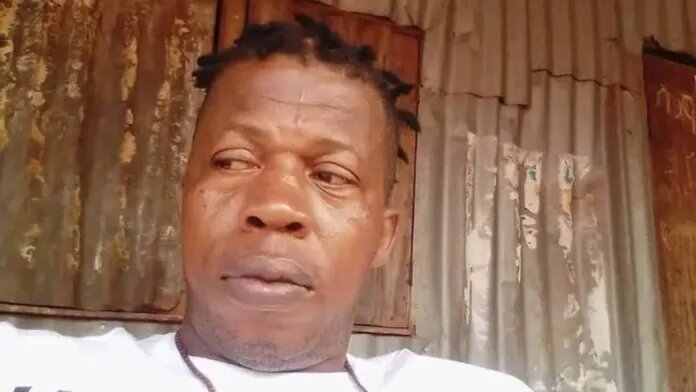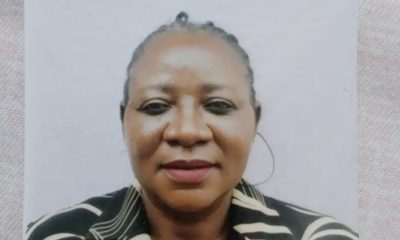OPINION
Is Life A Pennyworth In The Eyes Of Trigger-Happy Policemen?

BY ISAAC ASABOR*
In light of recent events, one is forced to question whether human life holds any value in the eyes of some members of the Nigerian Police Force. This troubling sentiment resurfaces as we grieve the recent loss of a popular Ogene musician, Okezie Mba, also known as Igbo-Jah, who was reportedly shot by a police inspector in Enugu State.
Witnesses say Mr. Mba was simply attending an event at the anti-cult unit of the Enugu State Police Command when the officers there began firing indiscriminately, one of their bullets tragically cutting short his life.
The disturbing pattern of police brutality and extrajudicial killings is not new, and it painfully resonates with sentiments I expressed years ago about how inconsequential human life seems to be in our society today. In my 2012 article, published in the PM News edition of 31st October 2012, twelve years ago, and titled, “Is Life a Pennyworth”, I wrote, “There are equally millions of people who seemingly take pleasure in exterminating the lives of others without even blinking their eyelids.” Today, we see the same unsettling trend in the very forces entrusted with protecting citizens. The Nigerian Police Force of my youth, the police I grew up with, was far from perfect but had a semblance of compassion, even going out of their way to help civilians in need.
Yet today, the value of human life appears to have eroded to the point where incidents like these, brutal and unprovoked, do not shock us as they should. Screaming and gruesome news headlines, which once left readers aghast, are now often met with desensitized indifference. Society, it seems, has begun to accept the random, callous taking of human life as part of daily existence.
The question of how we reached this tragic point remains pressing. In earlier days, community trust and mutual respect were the norms; people were their brothers’ keepers, and one could turn to the police with trust. Even when youth ventured out to Lagos’ nightlife or asked for directions at odd hours, police officers would respond with civility rather than suspicion. They saw their role as protectors, not threats, to the lives and well-being of citizens.
What has changed? To understand this, we must acknowledge a cultural shift in values that has taken place over the decades. At its core, this problem speaks to a breakdown in empathy, an inability or unwillingness to recognize that each life is precious and that the loss of one diminishes us all. Religion, ethics, and cultural teachings alike enjoin us to respect life, yet we see that words are hollow without actions to reinforce them. The lack of accountability, coupled with a culture of impunity, has created a societal crisis where those wielding power can take lives without fear of consequence.
One may ask, “Why do these violent incidents persist?” Perhaps it lies in the sad reality that some see human life as expendable, as a mere “pennyworth,” and often for trivial reasons. But even beyond individual motivations, a larger societal complicity in treating human life as cheap or expendable also exists. The consequences of this complicity are that citizens increasingly walk in fear, mistrust neighbours, and view encounters with law enforcement as potential death sentences rather than sources of protection.
In Psalm 139, David proclaims, “I am fearfully and wonderfully made.” This verse reminds us that each human life is inherently valuable, a truth we have somehow forsaken in the pursuit of power and control. As a nation, we must ask ourselves if we want to continue down this path where life has lost its sacredness, reduced to something that can be discarded at whim.
The tragic death of Igbo-Jah is yet another reminder of the imperative to re-examine our values, both as individuals and as a society. Law enforcement and all citizens must recognize that a paradigm shift is needed, a shift toward truly valuing life, irrespective of tribe, religion, or social standing. Nigeria, like any community, can only thrive if it treats the sanctity of life as foundational. If this shift does not happen soon, we risk remaining in a society where mutual suspicion, fear, and loss define our very existence.
The time is ripe for a renewed commitment from all levels of society to hold those who misuse their power accountable. We must insist on stringent reforms within law enforcement that emphasize de-escalation and protect the innocent. And we, too, must look within and foster a deeper empathy for others. This is the only way to reclaim the dignity and safety that every Nigerian deserves.
-
CRIME3 years ago
PSC Dismisses DCP Abba Kyari, To Be Prosecuted Over Alleged $1.1m Fraud
-
FEATURED4 years ago
2022 Will Brighten Possibility Of Osinbajo Presidency, Says TPP
-
FEATURED2 years ago
Buhari’s Ministers, CEOs Should Be Held Accountable Along With Emefiele, Says Timi Frank
-
BUSINESS & ECONOMY2 years ago
Oyedemi Reigns As 2023’s Real Estate Humanitarian Of The Year
-
SPORTS2 years ago
BREAKING: Jürgen Klopp Quits Liverpool As Manager At End Of Season
-
SPORTS2 years ago
Could Liverpool Afford Kylian Mbappe For €200 million? Wages, Transfer Fee
-
ENTERTAINMENT2 years ago
Veteran Nigerian Musician, Basil Akalonu Dies At 72
-
FEATURED2 years ago
Tribunal Judgement: Peter Obi Warns Of Vanishing Electoral Jurisprudence, Heads To Supreme Court
-
BUSINESS & ECONOMY2 years ago
Oyedemi Bags ‘Next Bulls Award’ As BusinessDay Celebrates Top 25 CEOs/ Business Leaders
-
FEATURED3 years ago
2023 Presidency: South East PDP Aspirants Unite, Demand Party Ticket For Zone

































